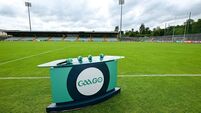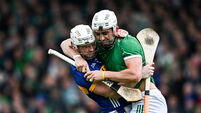The Kieran Shannon Interview: Fifty years a talking with Sean Ban Breathnach

Five decades after sitting into a radio studio for the first time, Seán Bán Breathnach remains as enthusiastic and animated as ever on the national airwaves.
Every hurler and footballer might dream of going up the steps to say a cúpla focal about an corn seo, but finding one to say a few words as Gaeilge for an interview is a completely different challenge for a broadcaster in the language.












